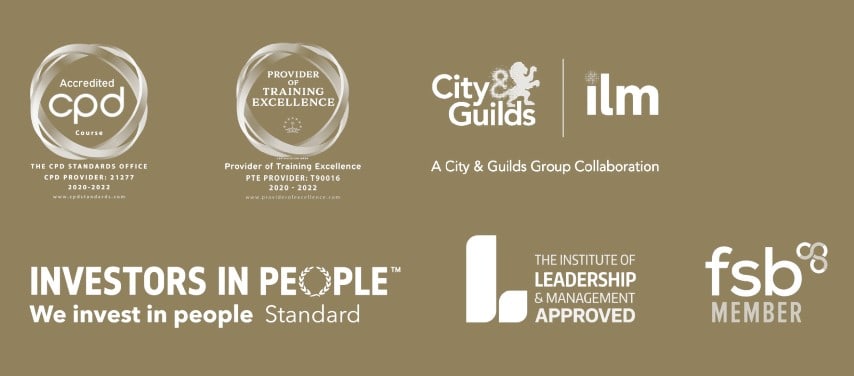
What you don’t say can speak volumes. As humans, we don’t just communicate through our words. Our body language, which encompasses our facial expressions, hand gestures and posture, also gives other people a lot of information about what we are thinking and feeling.
Research suggests that as much as 60-70% of meaning in human communication is derived from non-verbal behaviour. Despite this, many people don’t give much thought to their body language and are unaware of the messages they send out.
Here are 7 body language mistakes that many of us make on a regular basis but that are best avoided if you want to make a good impression.
Not making eye contact will make you appear nervous and unconfident at best and at worst it can even make you seem shifty and untrustworthy. Whether you are speaking to just one person or a larger group, holding someone’s gaze will create a confident and self-assured impression.
In a one-to-one conversation, it is helpful to picture the other person’s face as an inverted triangle with the three points at the eyes and mouth. Rather than staring fixedly at their eyes, you can move your gaze from one point to another every 5-10 seconds.
If you are with a larger group, it is advisable to rotate who you make eye contact with when you are the one speaking. If someone else is speaking, you should look mostly at them to show that you are listening and engaged with the topic being discussed.
If you have a poor posture, you are by no means alone. Many people spend most of their working hours in front of a computer and, as a result, have a tendency to slouch and droop their shoulders. But this common body language mistake sends the message that you are insecure and unsure of yourself.
Pulling your shoulders back and lifting your chin up will help you radiate confidence and professionalism. Research shows that having good posture not only boosts your confidence and reduces stress but also makes you more adept at tackling difficult tasks.
Don’t forget that your posture is still important when you are sitting down. Avoid crossing your legs or rounding your back and focus instead on sitting up straight with feet planted on the floor.
Gestures play a vital role in body language and can go a long way towards showing how someone is feeling. When we are nervous many of us have a tendency to make a smaller, inward gestures toward our bodies. To make yourself appear more open and confident, try to make bigger hand motions toward the other person.
You should also avoid overdoing your hand movements as they can become distracting for the other person. Beware of using chopping gestures or pointing your finger as these can be perceived as rude or aggressive.
Do you play with your hair, bite your nails or tap your feet when you are nervous? Feeling uncomfortable tends to bring forth all those nervous habits that we want to suppress in order to make a good first impression.
If you are giving a presentation or making a pitch, fidgeting can also be distracting for the audience and make it difficult for them to concentrate on what you are saying. It is not easy to stop these involuntary movements but being more aware of them is the first step to making a change.
Practicing relaxation techniques and cutting back on caffeine and sugar can help reduce anxiety levels while keeping long hair tied back and removing distracting jewellery can lessen the temptation to fidget.
Personal space is the circle of space surrounding a person’s body and the preferred size of this circle will vary from one individual to another. Personal space is something that we have become hyperaware of in the wake of the Covid-19 pandemic.
As the rules on social distancing become more relaxed, there is no longer a legal requirements to stay 2 metres away from people who are not in your household bubble. However, many people will still be reluctant to stand too close to others and it is important that you adjust your body language accordingly.
Covid risks aside, standing too close to someone can be perceived as hostile or aggressive behaviour. You should always be mindful of the other person’s body language and if they take a step back or start to lean away from you, it is probably a sign that you have invaded their circle.
Crossing your arms is another common body language mistake that many of us make without realising it. This pose creates a physical barrier between you and the person or group you are talking to. It can also make you look defensive and send the message that you are unapproachable, disinterested or even hostile.
If you are in the habit of crossing your arms, try keeping them down by your sides and notice how much more open your stance becomes. This openness in your body language will help you come across as calm, focused and self –assured.
Your facial expression is a key part of your body language. Your face tends to be the focal point whenever you are speaking to other people and it can help or hinder you in delivering your message.
A genuine smile demonstrates warmth, confidence and energy, but don’t overdo it as a forced grin can make you seem insincere and untrustworthy. Pay attention to the conversation and adjust your facial expression to suit the topic being discussed.
To perfect your smile, we recommend practicing in front of the mirror to make sure that your eyes crinkle at the corners and your cheeks move upwards. An added benefit of smiling is that it actually has the power to make us feel happier and more relaxed!
So there you have it – 7 body language mistakes you may not even know you are making but that you should do your best to avoid if you want to make a good impression. If you want to improve your body language, why not consider signing up for one of our private or group courses? As the saying goes, knowledge is power, and becoming more aware of your habits is the first step to improving your body language.
Share This Page, Choose Your Platform
New Release
Crushing Etiquette
"Excellent book, extremely well written and top content, very informative and relevant to all in all walks of life and business and professionals globally that want to advance in their careers and businesses at any stage and increase their professional impact and potential."
R G Goodier
New Release
Around the World
with Etiquette
This expert-written handbook distills essential country-by-country etiquette – from table manners and business protocols to wedding customs – so travellers, expats, and global professionals can avoid faux pas and make a polished impression abroad.
The British School of Excellence is the #1 industry leading organisation in etiquette, manners, life skills and service training.
The British School of Excellence is a certified Disability Confident Employer.
We believe that we are the best at what we do, but don’t just take our word for it – see the reviews of our courses at the independent review site Coursecheck.
Become a part of the BSE community to keep up to date with our courses, articles and news. Become a better, more confident and professional you!



Strewn with real-life stories, fun facts, playful wordsmithing and engaging rhetoric, this handbook will take you from the dining table to the boardroom table and even beyond borders.